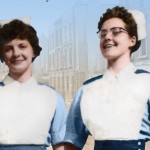The Reveal in Short Story Writing
‘Understated and reserved … terrifically measured –’ Josh Hollwey, Open Pen magazine.
I am not a prolific short story writer. I find it a difficult form. This is one of my few forays into that world and it took me some time to write a piece I felt happy with. Since it was shortlisted for an Open Pen prize I think I made a reasonable job of it. What makes it work, in my view, is the reveal …
THE ANNIVERSARY:
A strip of light broke through a gap at the window where the curtains didn’t quite meet. The room was stuffy and the radiator, cool when she went to bed, was now too hot to touch. Through the wall a voice delivered the news headlines in solemn, measured tones. Six o’clock. She pulled back the covers and sat up, fuzzy-headed. It was a long time since she had slept in a single bed, not that she had got much sleep. She rubbed her neck, stiff from the rigid, foam-filled pillows and went to the bathroom. Her face in the mirror, under lighting that was too bright, looked pale. The heat of the bedroom had made her eyes puffy. An extractor chugged in the windowless room. Unexpectedly, tears welled up and she steadied herself on the scalloped edge of the wash basin.
The night before, approaching midnight, she had rung the bell until a woman, seemingly unused to guests arriving so late without a reservation, padded into view in slippers and a dressing gown and let her in. It was the first time she had been inside Briar Lodge. When she was small she had thought there was something magical about the place with its leaded windows facing the sea, crimson ivy creepers running up the walls and along the edge of the roof, the heavy front door painted black, the house name etched into its stained-glass panel. She had begged her parents to take her there on holiday, even though they only lived a few streets away.
In her imagination, she had pictured Briar Lodge having vast rooms with four poster beds and dark, highly-polished furniture; heavy drapes that rustled when they were drawn back from the window. It might have been like that once. When she stepped into her room on the second floor she found yellowing net curtains, flimsy furnishings, bedding faded from too many turns in the washing machine, and narrow twin beds almost touching.
As she made her way to breakfast she could see how shabby the place was, the painted Anaglypta wallpaper curling away from the skirting board on the landing and a dusty chandelier missing a few bulbs at the foot of the stairs. A smell, something not quite fresh, hung in the air. In the dining room only one table had a single place setting. She sat at it, too far back from the bay window to see the sea. On the far side of the room four men in suits discussed a housing development further up the coast. A big old clock in a wooden case chimed eight times. Her stomach felt tight and her breakfast of eggs, scrambled into hard little pebbles set on triangles of buttered toast, went cold. She was nervous, more than she had expected, wondering how he would react when he opened the door, whether he would be pleased or perturbed to see her. Perhaps he wouldn’t be there. She should have told him she was coming.
The beach was quiet, one or two runners, walkers wrapped up against the February cold. A terrier, white with a brown patch over one eye, tore past. The sea, a slab of slate glinting in the sun, was a long way from the shore. Her jacket flapped open and cold seeped through her thin jersey top. She clambered over rocks that were wet and mossy, almost losing her footing, stepping into a shallow pool. Icy water sloshed over the top of her ankle boot, soaking into the fur lining. She bent and picked up a shell, the kind her mother used to say held the roar of the ocean, and slipped it into her pocket. In her wake, a wavy line of footprints weaved across the damp sand from the stone staircase that led to the promenade.
It was almost a year since she had walked with him along the sea front past the old fun fair to a hotel overlooking the bay where the fishing boats landed. The breeze coming off the sea that day had made her shiver and do up the buttons on her coat. Her hair was long then and she had tucked it inside her collar. She had put her arm through his. The claret and black check scarf knotted at his throat was one she had bought for him. By the time they reached the hotel bar their cheeks were raw. He seemed deep in thought and she guessed it was because in a few hours she would be on her way again. The separations had not become any easier. The first few times, he had come with her to the station and stood on the platform waving. She had put a stop to that since the sight of him left behind as the train carried her off over the Tyne Bridge made her want to weep.
‘Jess, I need to tell you something.’ His voice was strange, strained. He slid a beer mat across the table, then back again, not looking at her. Her eye was on the gold band on his wedding finger. ‘I’ve met someone.’
She felt her world begin to undo itself and when she spoke the words came out in a whisper. ‘I don’t understand.’ She did, of course. She understood perfectly well.
For a long moment they held each other’s gaze. ‘I want to be with her,’ he said. ‘Properly.’ Something new shone in his eyes, an unfamiliar spark of hope, amber lights glinting in the green, and it struck her how accustomed she had become to his sadness. If only she had been less wrapped up in work. She was hardly there – the odd weekend; two, three days at a time – barely enough to scratch the surface of his loneliness. How hard it must be for him, she thought. She hadn’t noticed, hadn’t wanted to.
A fisherman heaved baskets from his boat onto the jetty below. At the top of the slipway was the wooden stall where they had bought dressed crab in the summer. He kept his eyes on her. She didn’t speak, feeling odd, betrayed, even as a voice in her head told her she was being unreasonable. He took her hand and squeezed the fingers.
‘I’m struggling,’ he said. ‘I’m not good by myself. I don’t think I can …’ his voice trailed off. After a few seconds, he said, ‘I can’t be on my own any more.’ He sighed, sounding helpless and apologetic.
Her hand lay limp in his.
When he opened the door she was half hidden by the flowers she was carrying, old-fashioned cream roses wrapped in the kind of stiff paper that crackles when the wind catches it. The familiar embossed wallpaper in the hall had gone, in its place bare walls painted a cool, modern shade. Pistachio, she thought, remembering the ice cream shop on the sea front. Seeing the look of surprise and uncertainty on his face pulled at her. For too long she had punished him for a sense of loss they both bore. She hid behind the flowers not wanting him to see her shame as she moved forward, clumsy, stumbling against him. ‘I’m sorry,’ she managed to say as, a few yards away, a woman with cropped blonde hair, barefoot in a sloppy sweater and linen trousers, wiped her hands on a tea towel. His face was wet when he stepped back and took a handkerchief from his pocket, one of those big white cotton ones, and dabbed at her face, then his. ‘What a pair we are,’ he said.
She followed him along the hall of the house she had grown up in. In the alcove were roses, like hers, wrapped, their stems in water.
Her mother’s favourite blooms.
As she drew close to her father’s new wife, she registered alarm in the woman’s eyes and had a sudden sense of what she might be thinking; spiky step-daughter, come to make trouble on the anniversary of her mother’s death. The flowers in their flimsy wrapping, flattened in her father’s embrace, separated them, the fresh rainy fragrance of the roses filling the air. She held them out.
‘These are for you,’ she said.
The Anniversary was shortlisted for the Open Pen London Writers’ Café Prize in October, 2012.
c. Maria Malone 2012







